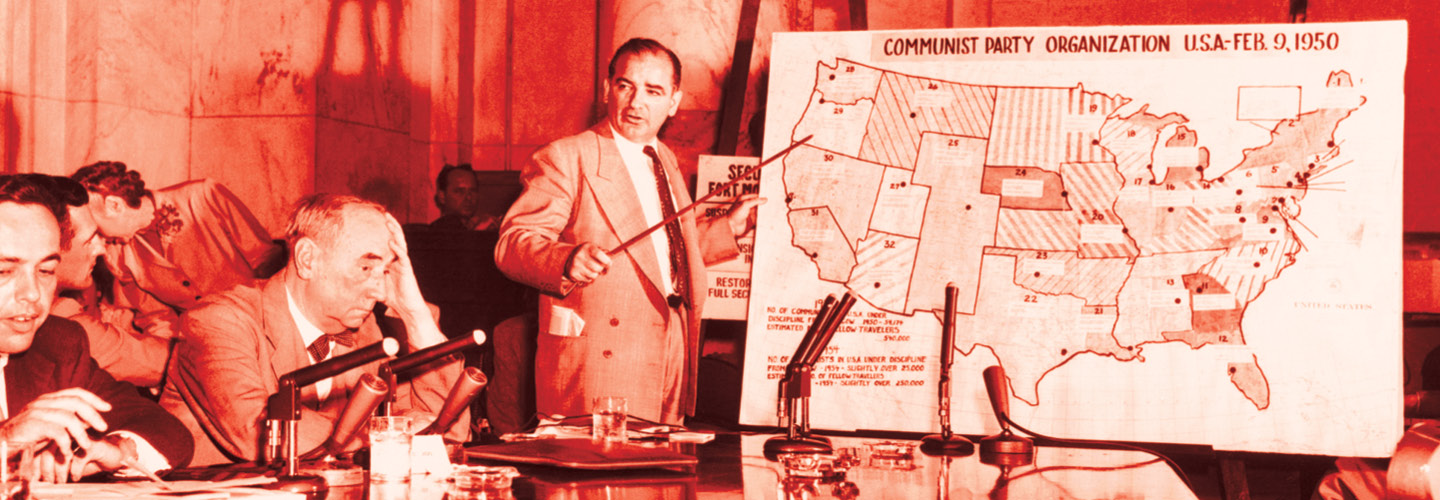The scripts that Ring Lardner Jr. wrote for blockbuster movies in the 1940s and ‘50s earned him an Oscar and the then-enviable salary of $2,000 a week at the 20th Century Fox studio. But he and nine other Hollywood screenwriters and movie directors—who together became known as “The Hollywood Ten”—had the same suspect blemish on their record: They had once joined the Communist Party.
In 1947, as the Soviet Union engineered the installation of puppet regimes across Eastern Europe, Americans grew increasingly anxious about the threat of Communism at home as well as abroad.
Ring Lardner Jr. wrote scripts for blockbuster movies in the 1940s and ’50s. They earned him an Oscar and the then-enviable salary of $2,000 a week at the 20th Century Fox studio. But he and nine other Hollywood screenwriters and movie directors had the same blemish on their record: They had once joined the Communist Party. They became known as “The Hollywood Ten.”
In 1947, the Soviet Union put puppet regimes in place across Eastern Europe. In turn, Americans grew more concerned about the threat of Communism at home as well as abroad.

